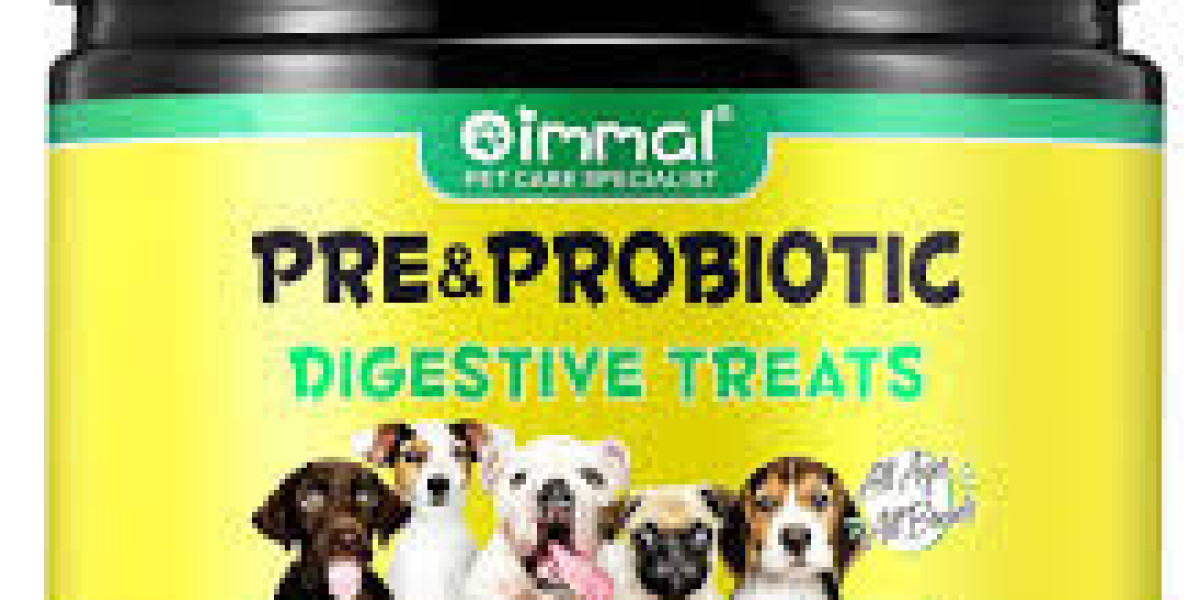As dog owners become increasingly aware of holistic health approaches for their furry companions, interest in prebiotics and probiotics for dogs has surged. These gut-friendly supplements play a key role in canine digestive health, immune system support, and overall wellness. But what exactly are they, and how do they benefit your dog?
What Are Prebiotics and Probiotics?
Probiotics are beneficial bacteria that naturally reside in your dog's gastrointestinal tract. These microorganisms help break down food, produce vitamins, and maintain a balanced gut environment. A healthy gut flora is crucial for proper digestion and can help prevent conditions like diarrhea, constipation, and bloating.
Prebiotics, on the other hand, are non-digestible fibers that serve as food for probiotics. Found in ingredients like chicory root, inulin, and certain fruits and vegetables, prebiotics promote the growth and activity of the good bacteria already living in your dog’s gut.
Together, prebiotics and probiotics form a powerful duo that can significantly enhance your dog’s digestive health.
Benefits of Prebiotics and Probiotics for Dogs
Improved Digestion: Dogs with sensitive stomachs or irregular bowel movements can benefit greatly from probiotic supplementation. These beneficial bacteria help regulate digestion and ease issues like flatulence, diarrhea, or constipation.
Enhanced Immunity: About 70% of a dog’s immune system resides in the gut. By balancing the microbiome, probiotics can improve your dog’s ability to fight off infections and illnesses.
Allergy Relief: Some studies suggest that probiotics may help alleviate symptoms of food and skin allergies by reducing inflammation and improving immune response.
Better Nutrient Absorption: A healthy gut ensures that your dog absorbs essential nutrients more efficiently, which is particularly important for puppies and senior dogs.
Mood and Behavior Support: Recent research in the “gut-brain axis” indicates a connection between digestive health and mental well-being. Dogs with a balanced gut microbiome often display better moods and reduced anxiety levels.
When Should You Consider Using Them?
You might consider adding prebiotics and probiotics to your dog’s diet if they’ve recently been on antibiotics, experienced digestive upset, or have chronic gastrointestinal conditions. They’re also useful during transitions—like switching food or moving homes—that can cause stress and affect digestion.
How to Choose the Right Supplement
Not all probiotics are created equal. Look for products that contain multiple strains of bacteria, high CFUs (colony-forming units), and guaranteed viability through the expiration date. Equally important is ensuring that the product is specifically formulated for dogs, as human probiotics may not be effective or safe for pets.
One trusted resource for information on canine gut health and natural supplements is puppadogs.com, where pet owners can find vetted advice, product reviews, and recommendations tailored to their dog's specific needs.
Final Thoughts
Supporting your dog’s digestive health through prebiotics and probiotics is a smart, proactive step toward overall wellness. Whether you’re managing a specific condition or simply aiming to enhance your dog’s quality of life, these supplements can be an excellent addition to a balanced diet. Always consult your veterinarian before introducing any new supplement to ensure it’s appropriate for your dog’s age, size, and health status.






